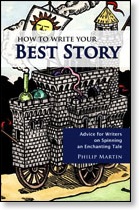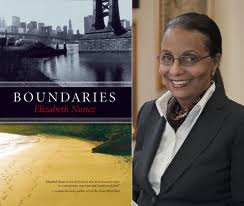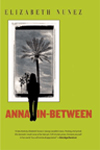Friday Find: “How To Write Your Best Story”
 I’ll be honest: I didn’t find Philip Martin’s slim new book, How To Write Your Best Story, on my own. Rather, it found me: I was in the middle of some struggles with a short story of my own when the author–whose anthology for writers I’d previously reviewed and admired–contacted me and asked if I’d like to receive a complimentary copy.
I’ll be honest: I didn’t find Philip Martin’s slim new book, How To Write Your Best Story, on my own. Rather, it found me: I was in the middle of some struggles with a short story of my own when the author–whose anthology for writers I’d previously reviewed and admired–contacted me and asked if I’d like to receive a complimentary copy.
Subtitled “advice for writers on spinning an enchanting tale,” this is a nice, focused little book (about 100 pages) that concentrates on three specific “aspects of story.” As Martin writes: “A story needs the other normal things too: good characters, a plot that works, and all that. But in my experience, a story will sink or swim based on the appeal of those three elements: intriguing eccentricity to draw us in, delightful details to make us enjoy the course of the story, and a satisfying conclusion to wrap it up well.” I liked especially Martin’s choice of quotations throughout; I was less enthralled with “The Princess and the Apple,” a story that threads throughout the book to illustrate concepts.
What I discovered only after reading the book is that there’s a blog to accompany and complement it. There, you will find a much more complete sense of what the book offers and how Martin presents his material than I’ve been able to give you here.
With that, I wish you all a great weekend. See you back here on Monday!

